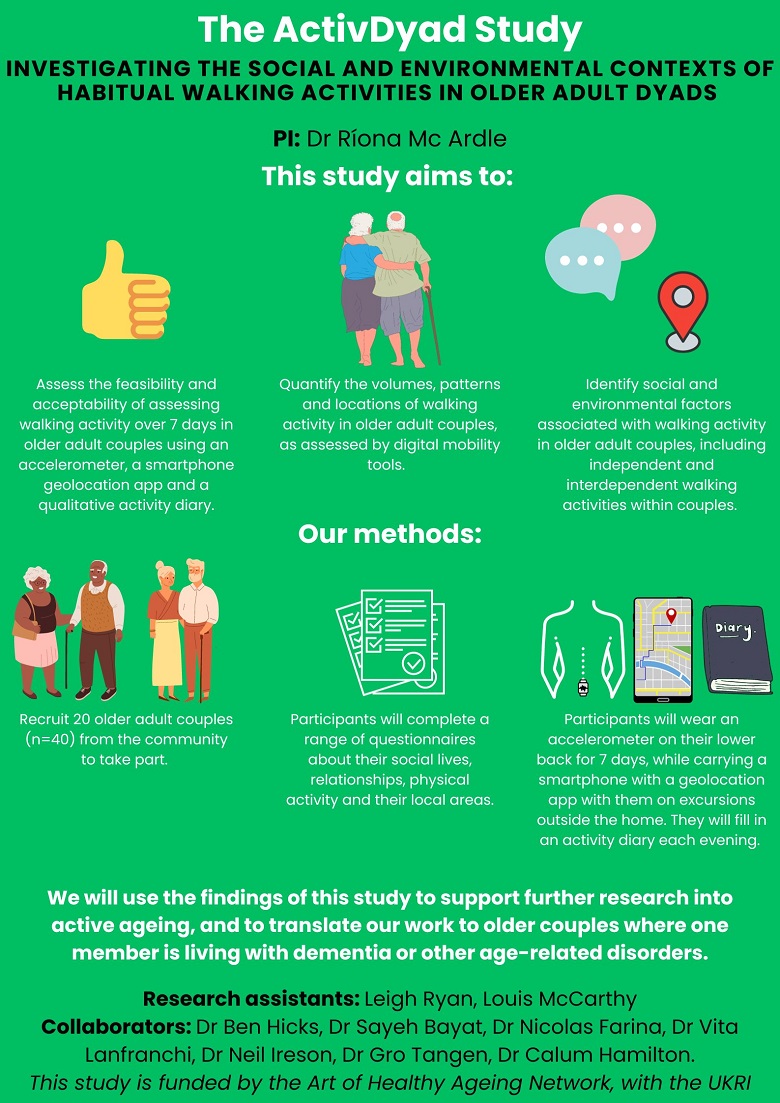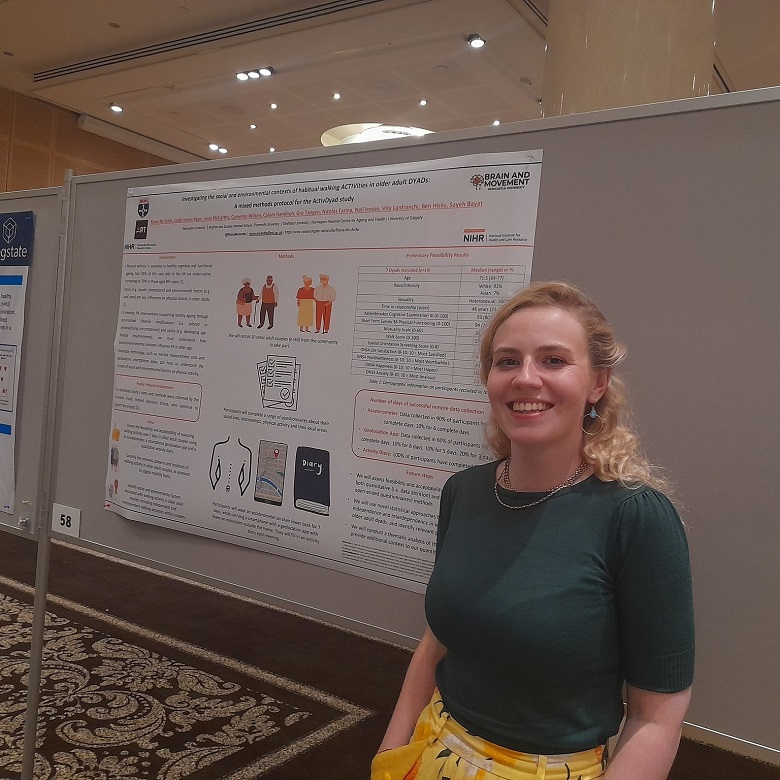Pump-priming project - Dr Ríona McArdle
Investigating the social and environmental contexts of habitual walking ACTIVities in older adult DYADs: A feasibility study (The ActivDyad study)
Principal Investigator - Dr Ríona McArdle, NIHR Advanced Fellow, Newcastle University

Staying physically active in older age is beneficial for physical capabilities and brain health but most older people do not meet physical activity recommendations. This may be due to clinical factors such as ill health, frailty, mobility issues or memory problems, but could also be due to social or environmental factors. For example, an individual’s partner may encourage them to participate in walking activity by joining them on walks outside, or an individual may not want to walk outside if they don’t feel the local area is safe.
This study aimed to explore how feasible and acceptable it is to use digital technology to continuously assess physical activity in older adult couples, and to identify key social and environmental factors which influence physical activity through a range of questionnaires, digital technology (i.e. activity monitors, GPS) and an activity diary kept over one week.
A total of 21 dyads (i.e. 42 people) were recruited to the study. Key findings were that overall, participants felt that using the digital tools and an activity diary for seven days were acceptable. Future improvements to study design based on feedback include changes in how the body-worn sensor is attached, providing a bag to carry the smartphone provided for data capture and a digital option for diaries. Emerging findings suggest that most couples carry out their walking activities together. Motivations for walking activity outside the house include socialising, visiting family, staying mentally/physically active and immersing oneself in nature; motivations for walking at home include housework and gardening. The most common barrier to activity is bad weather. Further analysis will explore capabilities and opportunities for walking.
The study was discussed with a Public and Patient Advisory Group and findings from the project have been presented at a number of scientific conferences and are now being prepared for publication.
Collaborating Institutions - Newcastle University, University of Calgary, Brighton and Sussex Medical School, University of Plymouth, University of Sheffield and Norwegian National Centre for Ageing and Health


